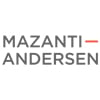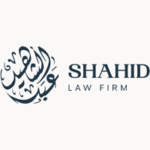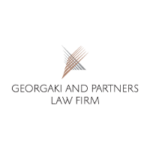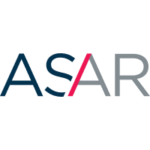-
What are the key rules/laws relevant to M&A and who are the key regulatory authorities?
1.1. In Liechtenstein the key sources of law relevant for M&A transactions are the Liechtenstein Persons and Companies Act (PCA) as well as the Liechtenstein General Civil Code. For transactions involving regulated companies, the Liechtenstein financial services laws are also applicable.
The forthcoming implementation of Directive (EU) 2019/2121 on crossborder conversions, mergers and spin-offs is set to play a key role for M&A transactions in Liechtenstein. This directive, together with to corresponding national implementing legislation, will not only modernise the legal framework for crossborder conversions but also create a more transparent regulatory structure for crossborder mergers.
In addition, the implementation of this Directive introduces statutory provisions for both crossborder and domestic spin-offs, ensuring a consistent and unified legal regime for corporate transactions. This is a significant legislative step forward, as spin-offs were previously only a matter of practice,for which the statutory rules on mergers were applied mutatis mutandis .
Due to EEA legal requirements, the new provisions on conversions impose a more formalised procedure, although crossborder conversions were already permitted in the past. However, this only affects conversions within the EEA, while the legal framework for conversions to third countries outside the EEA ( such as Switzerland) remain unchanged.
Similarly, there will be further harmonisation of the current rules on crossborder mergers, with a greater degree of formalism, but it will also increase legal certainty for those who apply the law.
Overall, the implementation of the Directive is a step forward in terms of legal certainty and transparency in the area of crossborder company restructurings. Although the implementation of the Directive will require some procedural adjustments, the new rules provide companies with greater planning certainty for crossborder transformation processes.
1.2. In addition, within the area of the financial services legislation, there are rules which are relevant for M&A transactions dealing with financial service providers supervised by the Financial Market Authority (FMA). In particular, the FMA must be involved in transactions which lead to a change of control in financial service providers under its supervision. A comprehensive reform of Liechtenstein’s financial market legislation came into force on 1 February 2025, including the new Trading Place and Exchange Act (TPEA). This law creates the regulatory framework for the operation of stock exchanges and other trading venues in the country. The aim of the reform is to create a modern, legally secure and transparent legal framework for the financial sector and to strengthen the Liechtenstein financial centre as a stock exchange location. Liechtenstein companies have so far been listed on stock exchanges in Switzerland or in the European Economic Area (EEA). Nonetheless, the Liechtenstein Takeover Act remains applicable for all listed Liechtenstein companies.
1.3. Due to its tiny internal market, Liechtenstein law does not provide for a national Merger Control system/legislation. However, due to its membership in the EEA, Liechtenstein is subject to the provisions and guidance imposed by the EEA merger control laws and regulations.
1.4. The enactment of the Blockchain Act (Token- und VT-Dienstleistungsgesetz) back in 2020 set forth the legal framework for distributed ledger technology service providers in Liechtenstein. As a consequence, companies regulated under the Blockchain Act are supervised by the FMA. It has turned out that this legal framework offers a solid, reliable and attractive platform for all parties involved in token transfers as well as for service providers, especially start-ups, to provide their services both nationally and internationally. This has a positive impact on M&A transactions in which regulated distributed ledger technology service providers are involved.
1.5. In recent years, Liechtenstein has also increasingly enacted legislation on sustainability and responsible corporate governance. Therefore, companies that meet the criteria for public interest entities (PIE) are required to report on their sustainability strategy and the aspects related to it. This requirement is in force since the 2024 business year and becomes increasingly relevant for legal due diligence within M&A transactions.
-
What is the current state of the market?
The vast majority of M&A deals continue to involve Liechtenstein companies concern private equity investments and crossborder transactions. Conversely, transactions which involve public companies which are based in Liechtenstein regularly take place via foreign stock exchanges.
Due to its membership in the EEA, Liechtenstein is constantly implementing the relevant EU-standards arising from the EEA Acquis Communautaire, also for crossborder transactions such as crossborder mergers or migrations to other EU jurisdictions. In the area of public offers for securities, Liechtenstein is subject to the EU wide framework for security prospectus which permits Liechtenstein issuers to passport a prospectus within the entire EEA. Vice versa, issuers in other EEA member states can publicly offer securities based on a prospectus approved in another EEA member state. In particular, crossborder mergers are also permitted between Liechtenstein and Swiss companies.
-
Which market sectors have been particularly active recently?
These sectors predominantly include industrial companies, private banks and insurers.
Recently, further an increased number of intragroup re-organisations had to be noted.
One could also ascertain an increase in inbound migrations and crossborder transactions mergers, also in the field of regulated financial service providers.
Furthermore, the FinTech market continues to be active. The same applies to start-up companies in the field of distributed ledger technologies. This could be seen as a consequence of the Blockchain Act which regulates distributed ledger services and the token economy. It is observed that newly incorporated start-ups in the Fintech scene are pursuing token-based business purposes as they find an adequate legal framework in Liechtenstein.
-
What do you believe will be the three most significant factors influencing M&A activity over the next 2 years?
The Liechtenstein legislator decided to introduce more flexible provisions on a permanent level to enable swifter and less bureaucratic corporate decisions. As a result, Liechtenstein invested significantly in the digitalisation of the public sector in recent years, and the digitalisation of administrative procedures in Liechtenstein significantly increased the efficiency for the closing of M&A transactions.
In addition, the PCA was adapted in an essential core area of corporate law to the new and constantly developing requirements of the digital age. With this amendment, hybrid and virtual meetings and the incorporation of certain legal entities have been legally established on a permanent basis. As a result, it is now possible to hold all corporate meetings also virtually and to participate in such meetings based on electronic means. Moreover, physical presence is no longer required for the incorporation of limited liability companies and the resulting applications to the commercial register. This can undoubtedly facilitate the whole process of signings and closings for corporate transactions for these companies. It remains to be seen whether this form of digital incorporation will also catch on for other types of companies.
The Notary Act has also been amended to allow notarisation of corporate decisions where not all participants are present but exercise their rights in the meeting by electronic means. In addition, digital notarisations and public certifications will also become feasible in due course.
Liechtenstein (Holding) companies which often are created for family-governed, foreign groups of companies continue to be frequently involved in M&A and other corporate transactions with a crossborder dimension.
Furthermore, Liechtenstein is a highly industrialized economy and traditionally export-oriented. Some Liechtenstein corporations are world market leaders in their field. Larger Liechtenstein industrial companies maintain successful subsidiaries abroad and therefore are regularly involved in both intragroup and extragroup M&A transactions.
It will also be interesting to see how new technological developments, especially in the field of distributed ledger technologies and smart contracts, will influence the execution and process of M&A deals.
-
What are the key means of effecting the acquisition of a publicly traded company?
As mentioned, some Liechtenstein domiciled public companies are currently listed on foreign stock exchanges, which may change following the newly implemented legal framework for a domestic stock exchange. Until such Liechtenstein stock exchange is established, the pertinent rules of the foreign jurisdiction in which the stock exchange is located continue to apply for the acquisition of shares in a publicly traded Liechtenstein company.
However, if such company is licensed in Liechtenstein and under the supervision of the FMA, the intention to acquire a majority stake or to obtain control in its shareholding must also be timely notified with the FMA. In addition, the notification duties under the Takeover Act and the Disclosure Act must be complied with.
-
What information relating to a target company is publicly available and to what extent is a target company obliged to disclose diligence related information to a potential acquirer?
It must be distinguished whether the target company is privately held or publicly listed.
For non-listed, private companies the information which is publicly available is very limited. For certain legal forms of such companies more public information can be obtained than for others: this includes information disclosed in the Commercial Register. Certain “harmonized” legal forms such as the company limited by shares (Aktiengesellschaft, AG) and the limited liability company (Gesellschaft mit beschränkter Haftung, GmbH) must also file financial statements with the Commercial Registry. For these types of companies, the file kept by the Commercial Registry is publicly available and accessible.
For listed companies please refer to Question 5 above.
For companies that are in possession of a license and supervised by the FMA certain additional information can be obtained by the public registers which are maintained by the FMA (also on the FMA’s website).
The scope of disclosable diligence related information further is subject to negotiation between the potential parties to a M+A transaction.
-
To what level of detail is due diligence customarily undertaken?
This depends on the specific transaction features and is subject to negotiation.
Frequently, a Liechtenstein subsidiary forms part of an international transaction. If this subsidiary is not the target company, market players often limit the due diligence review to basic issues (such as corporate information, review of the shareholdings, key employment contracts, change of control clauses, regulatory aspects, litigation etc).
Conversely, if the Liechtenstein entity itself is the target company, the scope and the level of detail for the due diligence review is increased significantly. However, also in such a scenario the structure of the transaction and the resulting information needs of the purchaser can very much determine the scope of the due diligence (intragroup transactions, MBO etc.).
Liechtenstein further implemented the 5th EU Anti Money Laundering Directive (5th EU-AML-Directive) which has also an impact on corporate transactions that lead to a change of control over a Liechtenstein company. As a result of such transaction, the new ultimate beneficial owner (UBO) and persons with means of control over the Liechtenstein company must be registered in the Liechtenstein UBO-Register within 30 days following the transfer of ownership.
Thus, as AML/KYC requirements continuously increase, it is also recommended in case of the acquisition of a financial service provider to audit the implemented AML/KYC processes and documentation systems by way of a specific legal and IT due diligence. The same applies to compliance with ESG related obligations.
-
What are the key decision-making bodies within a target company and what approval rights do shareholders have?
This depends on the legal type of the target entity. In practice, most target companies have the legal form of an AG. In such scenarios, the key decision-making body of a target AG is its board of directors. For other legal forms, the pertinent executive body would be in charge.
However, the articles of the target company can set forth additional requirements which must be met to close a M&A transaction. For instance, mergers and de-mergers typically require the approval of the general meeting of the shareholders. Conversely, other types of transactions do not necessarily need to involve the shareholders (e.g. asset deals) and are prepared and approved by the board of directors (provided that only a business unit or a part of a target’s assets are sold). It is of course possible for the board of directors to voluntarily obtain the shareholders’ approval for any corporate transaction.
Nonetheless, one needs to bear in mind that any amendment of the target’s articles in the course of the transaction will require the approval by the shareholders and will thus need the required majority set forth in the articles (including but not limited the issuance of new shares or the change of the target company’s name).
To the extent the shares issued by the target are subject to transfer restrictions set forth in the Articles, a separate approval by the board of directors typically will be necessary.
-
What are the duties of the directors and controlling shareholders of a target company?
The key rule is that the directors of a Liechtenstein company must primarily safeguard the target company’s interests. When being exposed to a potential transaction, they must safeguard the principles of the business judgment rule and comply with their duty of care and loyalty. For instance, if the transaction includes a merger or de-merger, the board of directors is responsible to draw-up the respective key agreement (Fusionsplan / Spaltungsplan). It must apply adequate transparency to the shareholders in this regard.
For transactions which involve more than one group company of the same group, there can be potential conflicts of interest which must be remedied by appropriate measures.
In transactions which involve the issuance of new shares (capital increases, mergers) or in which certain shareholders exercise a preemptive or a similar right, the board must treat any participating shareholder of the same category equally in the calculation and distribution of new shares.
Furthermore, it is also a principle under the Takeover Act that the board of the target must always act safeguarding the interests of the target and must treat all shareholders of the same category equally (to the extent that no statutory exceptions apply).
-
Do employees/other stakeholders have any specific approval, consultation or other rights?
In principle, Liechtenstein labour laws are fairly liberal and to some extent employer-friendly. Nonetheless, the legal framework takes into account the mandatory standards of certain EU Directives regarding the rights of employees. Therefore, some requirements to inform or consult with the target’s employees or employee representative body can be applicable. The planned implementation of the directive on cross-border conversions, mergers and spin-offs is also intended to improve the protection of employees. Therefore, the Merger Codetermination Act (MCA) will be completely revised. Nonetheless, neither these bodies nor labour unions can prevent a transaction from being performed.
Specific transactions may require additional steps such as the information of the employees in a crossborder merger.
Additional notifications of the competent authorities will be required if the target is under the supervision of the FMA or, if a mass dismissal of a target’s labour force is the consequence of a transaction.
-
To what degree is conditionality an accepted market feature on acquisitions?
It is subject to negotiation between the parties to define the applicable signing and closing conditions. In transactions in which a regulated target is involved it is customary to make the transaction conditional on the FMA’s prior approval. It is therefore common practice to close such a transaction only after the FMA has confirmed not to object to the change of the shareholding. As the law defines the procedure for the FMA’s approval process, the timeline for the transaction must be adjusted accordingly.
For public transactions conditionality can only be used to a certain extent.
Under the Takeover Act it is a key principle that insider trading and market distortions must be avoided at all times. Furthermore, all information disclosed and distributed by the bidder must be precise and complete; misleading statements must be avoided. Any conditions used in the offer must comply with these principles and all other prerequisites set forth by the Takeover Act. The Takeover Act expressly requires that all conditions and reservations included in the bidders offer must be transparently disclosed in the offer and must not be misleading, incomplete or unlawful.
-
What steps can an acquirer of a target company take to secure deal exclusivity?
Generally, the parties to a private M&A transaction are free to agree on exclusivity. Conversely for public deals this is not the case if offers must be submitted in accordance with the Takeover Act.
For certain companies in which the Liechtenstein state holds a majority stake there can be further (legal and political) restrictions on exclusivity.
-
What other deal protection and costs coverage mechanisms are most frequently used by acquirers?
This is subject to the agreement by the parties. There are several options such as agreeing on a break-fee in the transaction agreement. In any (private and public) offer such deal protection/cost coverage mechanism must be made transparent to the addressees.
-
Which forms of consideration are most commonly used?
In the great majority of share purchase agreements and asset deals the consideration consists of cash payments. Earn out mechanisms are quite common.
In more complex transactions escrow bank amounts are frequently used.
In other types of transactions, such as mergers, other types of consideration such as a combination of cash and newly issued shares are also common.
-
At what ownership levels by an acquirer is public disclosure required (whether acquiring a target company as a whole or a minority stake)?
Liechtenstein law provides for different statutory thresholds which trigger a disclosure requirement. Therefore, there are different statutory layers for such public disclosures.
For listed companies, the Disclosure Act requires that any direct or indirect acquisition or disposal (whether alone or by way of concerted effort) of shares in a listed company beyond or below the thresholds of 5, 10, 15, 20, 25, 33, 50 or 66 % of the voting rights of the target, a disclosure to the FMA is required. The Disclosure Act contains additional rules for the aggregation and calculation of the applicable percentages.
In addition, the financial services legislation (including but not limited the Banking Act, Insurance Supervision Act, the fund legislation etc.) provide for similar but additional specific thresholds which also apply if the target is not listed but under the supervision of the FMA.
Liechtenstein companies listed on foreign stock exchanges are also subject to applicable foreign disclosure rules.
-
At what stage of negotiation is public disclosure required or customary?
For listed companies, please refer to Question 5 above.
For regulated non-listed companies, the FMA takes the view that the intention to acquire or sell a participation which changes qualified the shareholdings in relation to the statutory thresholds triggers the need for notification. As part of its supervision, the FMA carries out a fit and proper test for both, the direct and the indirect purchasers of a Liechtenstein regulated target company. The transaction must not be closed unless the FMA does not object to the new shareholders.
-
Is there any maximum time period for negotiations or due diligence?
No, this is subject to the agreement of the parties. However, it is common for transaction parties to agree on long-stop dates for the completion of a transaction.
-
Is there any maximum time period between announcement of a transaction and completion of a transaction?
Liechtenstein law does not provide for a time limit between announcement and completion of a M&A transaction. The duration of the entire process – e.g. from the initial announcement of the deal to the final closing – is usually determined by the contractual agreements between the parties involved and the practical circumstances (e.g. closing conditions, etc.) of the individual case. Particularly in the case of private transactions, the timelines are flexible and can be freely agreed.
However, in the case of public takeover offers, the provisions of the Liechtenstein Takeover Act apply. These set minimum deadlines for certain steps (e.g. acceptance of the offer), but do not constitute an absolute upper limit for the entire closing period. There is only a fixed period of maximum ten weeks for the acceptance of the offer.
-
Are there any circumstances where a minimum price may be set for the shares in a target company?
Under the Liechtenstein Takeover Act, in a mandatory offer as well as in a voluntary offer, certain price rules must be observed.
In particular, the price offered in a mandatory takeover bid must not be lower than the last price which the bidder (or any person acting jointly with the bidder) granted or agreed to pay during the last 12 months prior to the notification of the offer for the very same security. In addition, the price must amount at least to the average market value of the respective security during the last 6 months prior to the publication date on which the intention to submit a bid occurred. Other specific rules for bids exist which do not exclusively provide for a cash consideration.
-
Is it possible for target companies to provide financial assistance?
Generally, it is possible for target companies to do so in view of the legal principle of freedom of contract. However, there are several limitations imposed by corporate, tax, insolvency and criminal law principles and restrictions. The same applies for the granting of upstream and cross-stream securities. The specific rules also depend of the legal form of the involved entities.
-
Which governing law is customarily used on acquisitions?
The parties to an M&A transaction regularly negotiate a choice of law clause which determines the governing law for the transaction agreements. Liechtenstein conflict of law rules do not necessarily require a share purchase agreement (SPA) dealing with a Liechtenstein target company to be governed by Liechtenstein law (although this is common practice if all the parties are domiciled in Liechtenstein). Frequently, where either the seller or the purchasers are non-Liechtenstein persons or entities, the SPA may be governed by the law of a foreign jurisdiction. Nonetheless, there will be non-contractual issues (regulatory law, corporate law, property law) which will be per se governed by Liechtenstein law and which are not open to the choice of foreign law.
In asset deal agreements it is advisable to choose Liechtenstein law as the governing law if the assets to be transferred (e.g. real estate properties) are subject to Liechtenstein law and/or physically located in Liechtenstein.
For other types of transactions such as mergers or de-mergers statutory law requires Liechtenstein law to be applied on the corporate aspects (in particular if the articles of the target have to be amended as a consequence of the transaction).
For listed Liechtenstein companies the law of the jurisdiction in which the respective stock exchange is domiciled will also apply. There can be scenarios in which both Liechtenstein corporate law and foreign listing rules/stock exchange laws are applicable on the very same transaction, e.g. on the issuance of new shares by way of capital increase of a Liechtenstein company which intends to list these new shares on a foreign stock exchange.
-
What public-facing documentation must a buyer produce in connection with the acquisition of a listed company?
Please see Question 5 above.
-
What formalities are required in order to document a transfer of shares, including any local transfer taxes or duties?
This predominantly depends on the type of shares that are the subject-matter of the transaction.
Basically, the transfer of registered shares in a private company requires a SPA and the physical delivery of the share certificates including an endorsement to the purchaser. In addition, a board approval may be necessary if there are transfer restrictions in the target’s Articles. To become accepted by the target, the new shareholder must be entered into the shareholder register of the target company.
The transfer of bearer shares in a private company basically requires a SPA and the notification and registration of the purchaser as the new shareholder in the company custodian’s register of shareholders. As mentioned under Question 4, bearer shares are deemed immobilized by law and thus are no longer transferred by way of mere physical delivery, but have to be deposited with a custodian.
With the enactment of the new Blockchain Act and other amendments the Liechtenstein legislator also approved of new mechanism which allows to reduce the formal requirements for a transfer of shares. It is possible to represent any form of security (registered or bearer shares) in a book-entered security (Wertrecht). If this is the case, only the registration of the new shareholder in the book of shares (Wertrechtebuch) is a prerequisite but not the physical transfer of the share endorsement. In addition, the book of shares can be managed and kept on a blockchain basis which makes it possible to transfer the registered book-entered securities automatically by way of tokens.
It should be noted that due to a bilateral Customs Union between Liechtenstein and Switzerland, Swiss stamp duties can apply, provided that one of the parties to the transaction qualifies as securities dealer. The law exempts for certain types of corporate restructuring transactions from stamp duty consequences.
-
Are hostile acquisitions a common feature?
No, in practice this is not the case.
-
What protections do directors of a target company have against a hostile approach?
Basically, the board of directors is not obligated to take up negotiations with an interested party if such negotiations are not in the interest of or even detrimental to the target company.
Many Liechtenstein companies with a small circle of shareholders have articles which restrict (or sometimes even prevent) the acquisition of shares by a third party outside of the existing circle of shareholders. New potential shareholders must be approved by the Board. In addition, such articles can also provide for preemptive rights of in favour existing shareholders. Such rights enable such shareholders to exercise control over the target company.
It is also common to conclude shareholder agreements which restrict or control the entry of third parties into the company. They often include preemptive rights of the key shareholders which can only be made between the parties of the shareholder agreement.
-
Are there circumstances where a buyer may have to make a mandatory or compulsory offer for a target company?
Yes, the Liechtenstein Takeover Act includes such requirements if the target company is a listed company.
A mandatory obligation to submit a takeover bid exists for the direct acquisition of more than 30% of the target company’s voting securities. Persons who alone or in concert with other persons acting jointly, acquire such controlling stake are obligated to notify, without delay, the FMA and within 20 trading days, must submit a bid for all securities issued by the target company in accordance with the Takeover Act (Pflichtangebot). Blocks of shares of less than 30% of the issued share capital benefit from a safe harbor clause provided by the Takeover Act. Other statutory exceptions from the obligation to submit a mandatory bid exist. Under the Takeover Act, the obligation to launch a mandatory takeover bid also extends to the indirect acquisition of control (of more than 30% of the share capital of the target company).
A target company can opt out in its articles that the threshold of 30% shall not be applicable. Alternatively, the company can provide for either an increased or a reduced threshold in its articles.
-
If an acquirer does not obtain full control of a target company, what rights do minority shareholders enjoy?
General corporate law grants a minority shareholder certain mandatory rights provided that such minority shareholder has a stake of at least 10% of the share capital. These rights mainly relate to shareholder meetings (request the convocation of shareholders meetings/proposals for agenda items). A company’s articles can contain additional minority rights beyond this statutory minimum.
Furthermore, there are several provisions under Liechtenstein corporate law which require qualified majorities for the resolution of important agenda items, such as the change of the purpose of a company, the performance of a merger or the increase or decrease of the share capital.
For listed companies, the Takeover Act sets forth a squeeze-out procedure for minority shareholders (please see Question 27).
-
Is a mechanism available to compulsorily acquire minority stakes?
The squeeze-out rules under the Takeover Act are confined to Liechtenstein companies which are listed on a stock exchange. Consequently, they do not apply to any other Liechtenstein entity. Under the Takeover Act, a bidder who owns at least 95% of the voting rights and of the target company’s capital is entitled to request the FMA to order the nullity (Kraftloserklärung) of the remaining issue securities. However, such squeeze-out has to occur against payment of the offered price. Depending on the location of the listing, foreign squeeze-out rules may (also) be applicable.
Liechtenstein: Mergers & Acquisitions
This country-specific Q&A provides an overview of Mergers & Acquisitions laws and regulations applicable in Liechtenstein.
-
What are the key rules/laws relevant to M&A and who are the key regulatory authorities?
-
What is the current state of the market?
-
Which market sectors have been particularly active recently?
-
What do you believe will be the three most significant factors influencing M&A activity over the next 2 years?
-
What are the key means of effecting the acquisition of a publicly traded company?
-
What information relating to a target company is publicly available and to what extent is a target company obliged to disclose diligence related information to a potential acquirer?
-
To what level of detail is due diligence customarily undertaken?
-
What are the key decision-making bodies within a target company and what approval rights do shareholders have?
-
What are the duties of the directors and controlling shareholders of a target company?
-
Do employees/other stakeholders have any specific approval, consultation or other rights?
-
To what degree is conditionality an accepted market feature on acquisitions?
-
What steps can an acquirer of a target company take to secure deal exclusivity?
-
What other deal protection and costs coverage mechanisms are most frequently used by acquirers?
-
Which forms of consideration are most commonly used?
-
At what ownership levels by an acquirer is public disclosure required (whether acquiring a target company as a whole or a minority stake)?
-
At what stage of negotiation is public disclosure required or customary?
-
Is there any maximum time period for negotiations or due diligence?
-
Is there any maximum time period between announcement of a transaction and completion of a transaction?
-
Are there any circumstances where a minimum price may be set for the shares in a target company?
-
Is it possible for target companies to provide financial assistance?
-
Which governing law is customarily used on acquisitions?
-
What public-facing documentation must a buyer produce in connection with the acquisition of a listed company?
-
What formalities are required in order to document a transfer of shares, including any local transfer taxes or duties?
-
Are hostile acquisitions a common feature?
-
What protections do directors of a target company have against a hostile approach?
-
Are there circumstances where a buyer may have to make a mandatory or compulsory offer for a target company?
-
If an acquirer does not obtain full control of a target company, what rights do minority shareholders enjoy?
-
Is a mechanism available to compulsorily acquire minority stakes?





























